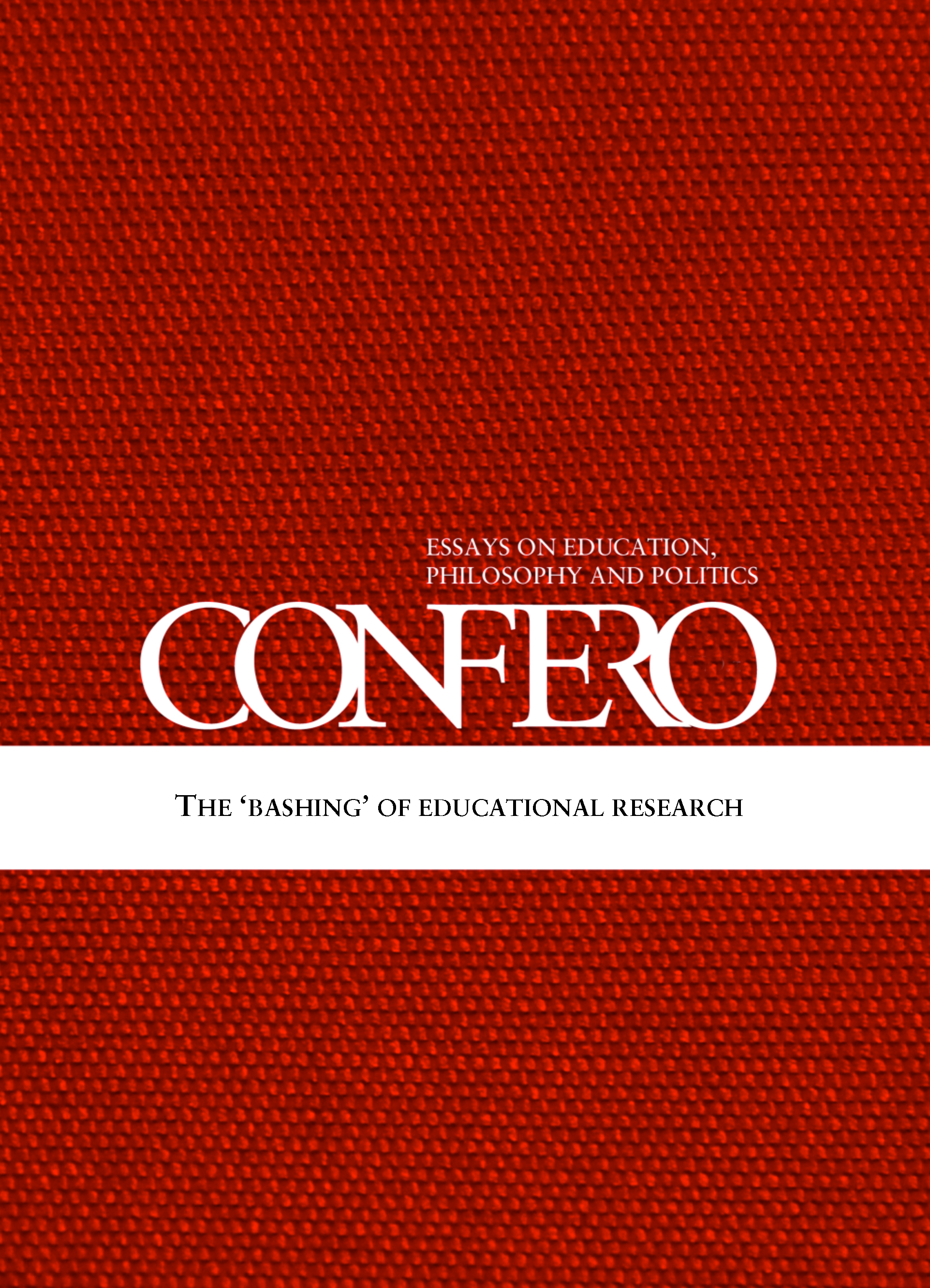The Economic Problem of Masochism in Education
DOI:
https://doi.org/10.3384/confero.2001-4562.180910Abstract
It is no secret that there is much to learn from masochism. But its lessons have yet to include the thought that educational relations might themselves be structured by a masochistic economy. Given that our claim for the existence of this economy is made from within the academy, care must be taken, unless the educational researchers who comment on it be considered exempt. Educational researchers are not above nor insulated from what they critique. Educational researchers actively participate in masochistic games of love and hate, pleasure and discomfort that define educational relationships. They participate directly as lovers and sufferers of education themselves, or indirectly by providing long, wearing critiques of education that function as so many reasons for disappointment. Everyday educators and educational researchers alike are tied, bound together, with the latter serving to reinforce this economy of pain by furnishing educators with a scholarly framework, an optional supplement, a pile of books, papers and reports within which they can somewhat pleasurably locate their suffering. But this is not all they achieve. In addition to providing lengthy disquisitions explaining what all educators already feel, and have long felt more acutely – namely, transposing into writing a sense of the ‘shitness’ of things – educational research helps sustain what it bemoans. It gives succour to that love of education, the educator’s love of what they do, that finds pleasure still in the discomfort and displeasure that education must necessarily produce. Educational research dignifies education with moral purpose and helps sustain our love for it by endlessly implying education must be worthy of morally informed critique and attention. We urge the reader to keep these discomforting ideas in mind, throughout the essay that follows.
References
Allen, Ansgar. The Cynical Educator. Leicester: Mayfly, 2017.
Allen, Ansgar. “Education, Mastery and the Marquis de Sade.” Other Education 5.2 (2016), 39-55.
Allen, Ansgar. Benign Violence: Education in and beyond the Age of Reason. Basingstoke: Palgrave Macmillan, 2014.
Bersani, Leo. The Freudian Body: Psychoanalysis and Art. New York: Columbia University Press, 1986.
Bojesen, Emile. “Innovative/Modern Learning Environments and the Uneven Return of Pastoral Power.” Educational Philosophy and Theory 49.8 (2017): 788-795. https://doi.org/10.1080/00131857.2016.1267604
Bojesen, Emile. “A New Version of Optimism for Education.” Studies in Philosophy and Education 37.1(2018): 5-14. https://doi.org/10.1007/s11217-016-9560-1
Clarke, Matthew. “Beyond Education beyond reason and redemption: a detour through the death drive.” Pedagogy, Culture & Society (2018) https://doi.org/10.1080/14681366.2018.1447508
Deleuze, Giles. Masochism: Coldness and Cruelty. Cambridge, Massachusetts: MIT, 1999. (Originally published in 1967)
Dunne, Éamonn. “Love Foolosophy: Pedagogy, parable, perversion.” Educational Philosophy and Theory 45.6 (2013): 625-636. https://doi.org/10.1080/00131857.2012.723886
Foucault, Michel. The Will to Knowledge. London: Penguin, 1998. (Originally published in 1976)
Freud, Sigmund. “The Economic Problem of Masochism.” In J. Strachey, ed. The Standard Edition of the Complete Psychological Works of Sigmund Freud. Volume XIX. 159-170, 2001a. (Originally published in 1924)
Freud, Sigmund. “The Ego and the Id.” In J. Strachey, ed. The Standard Edition of the Complete Psychological Works of Sigmund Freud. Volume XIX. 12-68, 2001b. (Originally published in 1923)
Freud, Sigmund. “Civilization and its Discontents”. In J. Strachey, ed. The Standard Edition of the Complete Psychological Works of Sigmund Freud. Volume XXI. 53-148, 2001c. (Originally published 1930)
Hunter, Ian. Rethinking the school: Subjectivity, bureaucracy, criticism. New York: St Martin’s Press, 1994.
Lacan, Jacques. The Ethics of Psychoanalysis 1959-1960: The Seminar of Jacques Lacan Book VII. Translated by Dennis Potter. London and New York: Routledge, 2008. (Originally published in 1986).
Ladkin, Sam, McKay, Robert, & Bojesen, Emile, eds. Against Value in the Arts and Education. London and New York: Rowman and Littlefield, 2016.
Laplanche, Jean. Life & Death in Psychoanalysis. Translated by Jeffrey Mehlman. Baltimore: Johns Hopkins University Press, 1976. (Originally published in 1970)
Laplanche, Jean. & Pontalis, Jean-Bertrand. The Language of Psychoanalysis. Translated by Donald Nicholson-Smith. London: Karnac Books, 1988.
McLaren, Peter. & Leonardo, Zeus. “Deconstructing Surveillance Pedagogy: Dead Poets Society.” Studies in the Literary Imagination 31.1 (1998): 127-147.
Žižek, Slavoj. The Metastases of Enjoyment: On women and causality. London: Verso, 2005.
Downloads
Published
Issue
Section
License
Copyright (c) 2018 Ansgar Allen, Emile Bojesen

This work is licensed under a Creative Commons Attribution 4.0 International License.
As Confero is an open access journal, this means that anyone who can access the Internet can freely download and read the journal. There are no commercial interests for Linköping University Electronic Press or Confero in publishing the journal.
The core idea of open access is that copyright remains with the author(s). However, we publish with the agreement of the author that if she or he decides later to publish the article elsewhere, that the publisher will be notified, prior to any acceptance, that the article has already been published by Confero.
When publishing with Confero, it is with the agreement of the author that if they make their article available elsewhere on the internet (for example, on their own website or an institutional website), that they will do so by making a link to the article as published in Confero using the Digital Object Identifier (DOI) number of the article and acknowledge in the text of the site that the article has been previously published in Confero.
As evident by the markers on our homepage, Confero falls under the Creative Commons licence abbreviated BY. This means that we allow others to use, spread and elaborate on the published articles, as long as they acknowledge who published it and where it was originally published.



